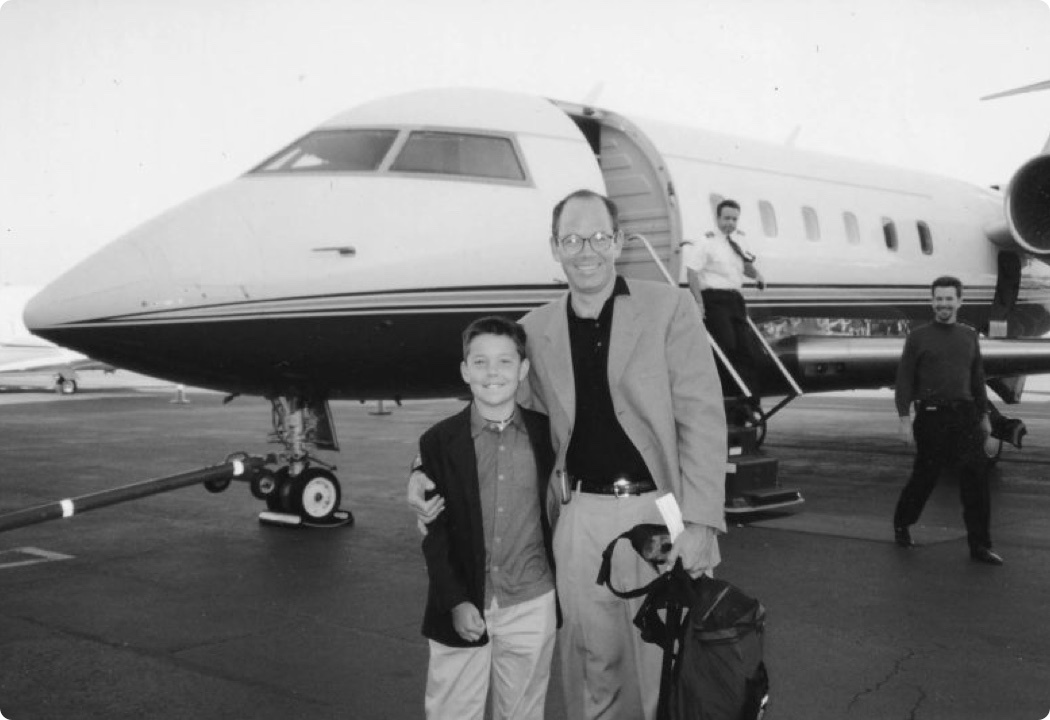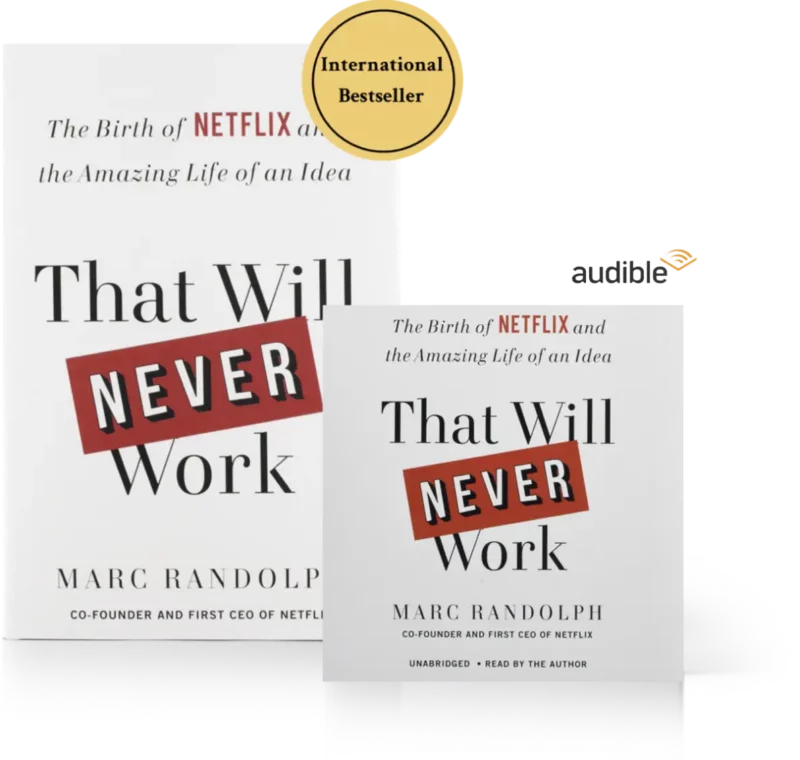Why I Waited Sixteen Years to Write My Book About Netflix.
“You should write a book”, they said. But why the Hell would I want to do that?

Ever since I left Netflix in 2003, people have been telling me the same thing:
You should write a book.
And I always have said the same thing in response:
Why the hell would I want to do that?
See, I’ve known people who wrote books. And they told me a couple things: It was hard work, it took forever, and most of them were unhappy with the finished product. If you wrote honestly about yourself, it sounded like you were bragging. If you wrote honestly about other people, it sounded like you were settling old scores.
In the years after I left Netflix, the company I co-founded, I didn’t want to puff myself up or tear anyone else down. And besides, I was still working — advising new start-ups, starting new companies, giving speeches about innovation and leadership at conferences around the globe.
I was busy and happy in my own life, and thought that a book was something you did in retirement, when you were through with everything else and had time to look back.
As the years went by, writing a book got even less urgent. Who wanted to read a book about Netflix from the co-founder years after he left?
The truth is, I only started thinking of writing a book a couple of years ago, when Richard Branson invited me to give a talk at a conference on his private island in the Virgin Islands.
I know, I know — that sounds really obnoxious. But bear with me.
First of all, I didn’t want to go. I had a mountain biking trip scheduled for that weekend, and the gig on Necker was pro-bono. But my wife Lorraine — a voice of reason in all things, and a lover of the beach — told me that if Richard Branson invited you to his island, you went. Which is how I found myself on Necker Island, barefoot, speaking to a small group of passionate business owners, covering my usual topics — How nobody knows anything, how if you want to make a dream a reality, you have to get up off your ass and just start.
Usually, when I give talks, I’m 100% there, 100% present. But this time I was having a hard time staying focused. The theme of the event was “finding your purpose,” and while I waited for my turn to speak, I sat quietly in the audience, listening as speaker after speaker challenged the audience to ask themselves about their purpose. Yes, they had already achieved “success,” but now they were being asked a simple, yet profound question:
What are you going to do with it?
What’s my purpose? I found myself thinking. Sure, Necker Island is fun, but next week I’ll be in Dallas, where 5,000 people are showing up to hear what I have to say.
What do I do with that?
Am I doing enough with it?
There’s a lot you can do with fifty minutes, a microphone, and five thousand butts in seats. You can boil down years of your life into a couple of easy-to-digest lessons. You can get a laugh. You can inspire.
But you can’t tell the whole story. And even then, standing onstage at Necker Island, I found myself wanting to do something more. I wanted to give this small group of people the type of in-depth help and insight that I usually could only provide over thousands of hours with the CEOs and start-ups that I mentored. I wanted to use my story of starting Netflix— the whole thing, warts and all — to show how a dream could make it from the inside of one’s head out into the real world.
“It’s like this,” a friend of mine said, one day while we were walking in the woods near my house. “Right now, as a mentor, you can spend 1,000 hours and make a profound difference in a dozen lives. Or you can give a speech, and in fifty minutes get five thousand people to maybe think a little bit differently. But if you write a book, you could reach a million people, and they’ll get the story — the whole thing — in a day or two.”
So I decided to write a book about the thing I’m most passionate about:
How to turn a dream into a reality.
The book proposal I wrote last year was instructive, a “scene-by-scene guide to getting off your ass and following your dreams.” In fact, that was the subtitle. But it turns out that in publishing, as in start-ups, the path from dream to reality often entails a fair amount of course correction. After we sold the book, my brilliant editor at Little, Brown had a rather large piece of advice —
This isn’t a self-help book, or a business book. This is a memoir about an entrepreneur. Write about yourself. Tell us the whole story.
And for the next year, I did. For the first time, I told the full story of my time at Netflix: how Reed Hastings and I went from a Patsy Cline cd and a birthday card envelope to one of the most innovative companies in history. I gave myself room to analyze my strengths and — more importantly — my weaknesses, as an entrepreneur and a leader. I talked to old coworkers and friends, some of whom I hadn’t seen in almost twenty years.
And slowly, but surely, I started to learn new things, about both the Netflix story and myself. About who I am as a leader, a husband, a father. About how those eight years building Netflix changed not just the world — but me. And I came to a new understanding of the lessons that, for years, I’ve been pulling from the Netflix story.
I originally set out to write a book full of lessons, addressed to an invisible you. But in the end, I found those lessons by looking long and hard in the mirror — at a very visible I.
I’m so glad I waited sixteen years to write about Netflix. There’s no way I could have written this book in 2003. I was too close to the events it describes. I didn’t have the perspective — about myself and about everyone else — to write honestly and transparently about what we accomplished, our successes and yes, our failures. I exited Netflix on wonderful terms, but I don’t think I was totally at peace.
I am, now. And by writing this book in 2019, I was able to see our story — mine, and Reed’s, and Mitch Lowe’s, and Christina Kish’s, and so many others’ — for what it was: the occasionally maddening, occasionally inspiring, and ultimately triumphant journey of a dream becoming a reality.
I wrote this book in 2019 for one reason.
It wasn’t for money — I don’t need it.
It wasn’t for fame — I don’t want it.
It was because it took me sixteen years to figure things out.
And I wrote it not just for entrepreneurs, tech CEOs, and businesspeople. I wrote it for anyone who has a dream that they want to make real.
I wrote it for you.
RECOMMENDED FOR YOU
Want to Make Things Easy for Your Team?
Podcast Episode 72
Is it a Culture Problem or a Hiring Problem?
October 25, 2022 • 38 min
